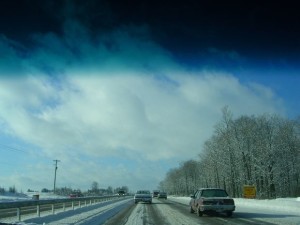NO FEES unless we recover money for you. |
Call 205-391-0618
Office Locations: Tuscaloosa Birmingham
Blog
Severe Winter Weather Blamed for Many Alabama Auto Accidents
Feb 13, 2014 - Car Accidents, Tuscaloosa by Cross & Smith
Alabama isn’t generally known for being a cold-weather state.
You might not be able to tell that, however, if you had ventured out onto the highways over the past several weeks.
A 17-car pileup occurred recently in Hoover, just south of Birmingham. Then there were numerous cars and at least five 18-wheelers piled up recently on I-59. And in, Central Alabama, I-65 had to be shut down after numerous 18-wheelers jack-knifed in the middle of the highway.
In fact, since Dec. 1, there has been at least one report of a weather-related, multiple-vehicle pileup somewhere in the country, according to a recent analysis by USA Today. Our Tuscaloosa car accident attorneys want to caution drivers to use the utmost care when heading out in bad weather.
Last year, there were a total of nearly 110 chain-reaction crashes on U.S. roads, and most of those happened December through February. More than 60 percent of those were the result of bad weather. Of those, 20 were preceded by snow storms. Fifteen were caused by icy roads, nine by fog, eight by freezing rain and seven by rain.
About three-quarters of those happened on highways or similar roadways, which makes sense considering these are the thoroughfares that have a lot of traffic moving at high rates of speed.
Although there are some who chide the South for the seemingly panicked reaction to an inch or two of snow or a few sheets of ice, the reality is that not only are department of transportation officials caught off-guard, so too are motorists.
Black ice or whiteout conditions can develop very suddenly. For drivers unaccustomed to traversing that kind of weather, it quickly becomes an extremely treacherous situation. The biggest problem, officials say, is the fact that many drivers fail to slow down in response to the conditions. They continue to travel at the posted speed, failing to recognize that those speeds are the limits intended for optimal road conditions.
Even those who are used to these kinds of problems don’t always react appropriately. Recently a traffic camera in Wisconsin captured a pileup as it unfolded there. The snow was heavy. The traffic was moving fairly slowly. But then a couple cars traveling at much faster speeds began to skid. They collide. They block the road. Other cars traveling too fast slam into those vehicles. Within seconds, 70 vehicles are piled-up.
Thankfully, not many chain-reaction crashes result in fatalities (although they certainly can, as the recent Indiana pileup illustrates). Usually, though, they do result in a number of injuries, many of them quite serious.
A study by the National Highway Traffic Safety Administration reports that while an average roadway death costs about $1.3 million in economic losses, injured survivors cost about $1.5 million. That includes everything from medical bills to lost wages.
The best thing motorists can do to avoid one of these scenarios is to reduce their speed to match the current conditions.
Additional Resources:
Harsh winter bringing huge toll of highway pileups, Jan. 30, 2014, By Larry Copeland and Paul Overberg, USA Today
Categories
- Amputation
- ATV/SUV Rollover Accidents
- Bessemer
- Birmingham
- Bus Accidents
- Car Accidents
- Construction Accidents
- Dangerous Products/Liability
- Defective Medical Devices
- Drunk Driving Accidents
- Firm News
- Medical Malpractice
- Motorcycle Accidents
- Nursing Home Neglect
- Personal Injury
- Pharmaceutical Litigation/Dangerous Drugs
- Premises Liability
- Train Accidents
- Truck Accidents
- Tuscaloosa
- Uncategorized
- Workers' Compensation/Work Injury
- Wrongful Death
Archives
Get a Free Consultation No Recovery. No Fee.
Hear What Our Clients Have To Say
"I have great respect for the lawyers at this firm and would recommend them to anyone. "
Posted By: Adam Freeman

